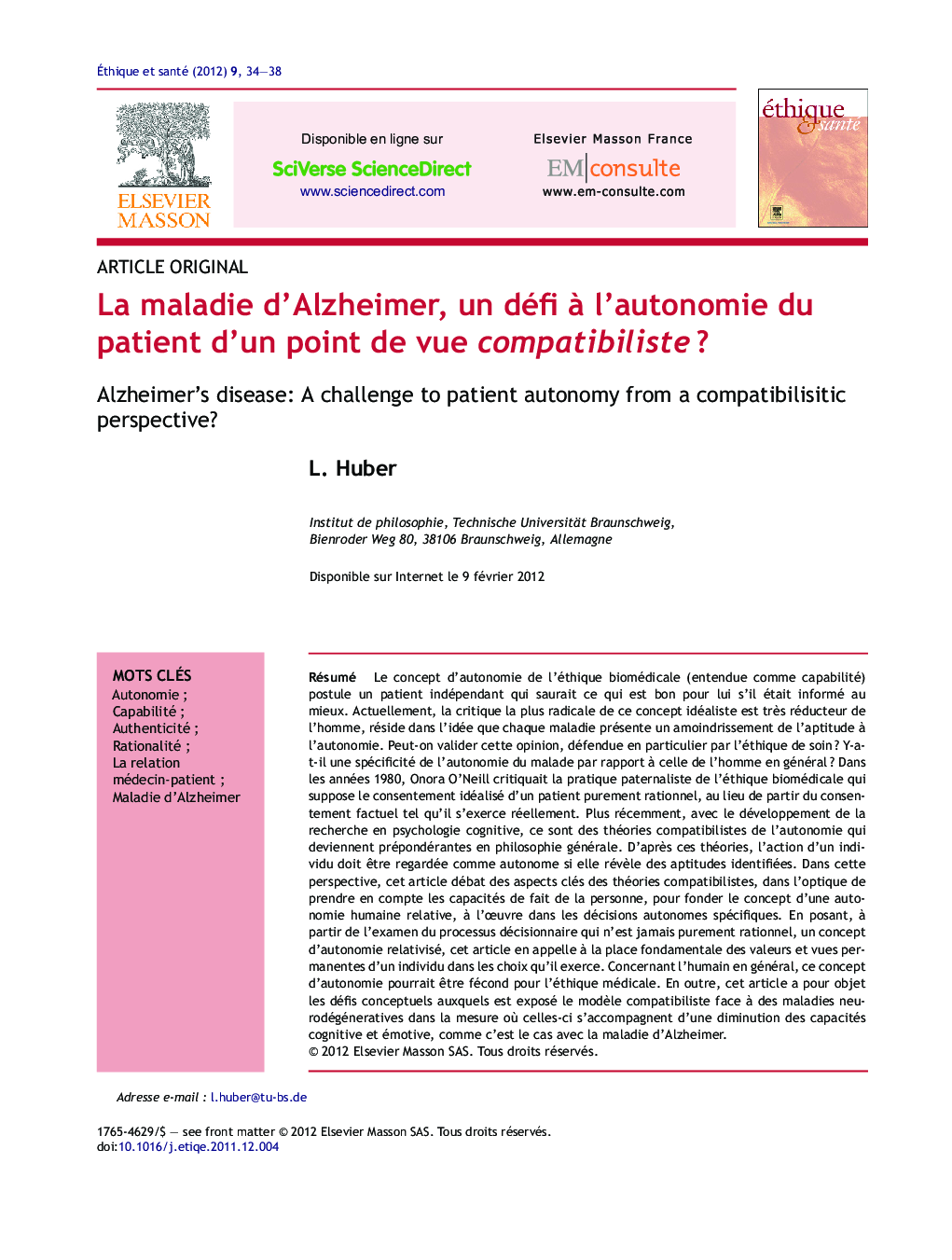| کد مقاله | کد نشریه | سال انتشار | مقاله انگلیسی | نسخه تمام متن |
|---|---|---|---|---|
| 1072335 | 949712 | 2012 | 5 صفحه PDF | دانلود رایگان |
عنوان انگلیسی مقاله ISI
La maladie d'Alzheimer, un défi à l'autonomie du patient d'un point de vue compatibiliste ?
دانلود مقاله + سفارش ترجمه
دانلود مقاله ISI انگلیسی
رایگان برای ایرانیان
کلمات کلیدی
موضوعات مرتبط
علوم پزشکی و سلامت
پزشکی و دندانپزشکی
سیاست های بهداشت و سلامت عمومی
پیش نمایش صفحه اول مقاله

چکیده انگلیسی
In biomedical ethics, the concept of autonomy (as capability) is based on the ideal of an independent, autonomous subject being well informed and therefore exactly knowing how to opt when it comes to decision-making. Nowadays, the most radical critique of this ideal notion characterises the decision-making process of patients as being always substantially limited due to their status of being ill. Can this view - especially held by care ethicists - be validated? Is patient autonomy, unlike autonomy in general terms, special? Furthermore, the paternalistic practice of biomedical ethics considering the assumed, hypothetical consent of an idealised entirely rational patient, instead of the actual consent of a patient had been thoroughly criticised by Onora O'Neill in the 1980s. More recently, following studies in cognitive psychology (subliminal perception, volition, and control of action), so-called compatibilistic theories of autonomy are becoming more important within philosophy. Thus, an action could be regarded as autonomous, if resulting from the specific skills of a person (theory of competence). Hence, the paper discusses key aspects of current compatibilistic accounts of autonomy with regard to the project of a non-idealised concept of autonomy that may also be validated with regard to an ethical account of (patient) autonomy as an actual or factual capability of a person. Defending a moderate concept of rational decision-making, this paper refers to one specific aspect of autonomous decision and action, viz., the lasting values and objectives of an individual or the so-called personal preferences. Furthermore, this paper confronts the conceptual challenges posed to the compatibilistic model of autonomy in the face of neurodegenerative diseases, insofar as the latter, including AD, involve an impairment of cognitive and emotive capacities.
ناشر
Database: Elsevier - ScienceDirect (ساینس دایرکت)
Journal: Ãthique & Santé - Volume 9, Issue 1, March 2012, Pages 34-38
Journal: Ãthique & Santé - Volume 9, Issue 1, March 2012, Pages 34-38
نویسندگان
L. Huber,